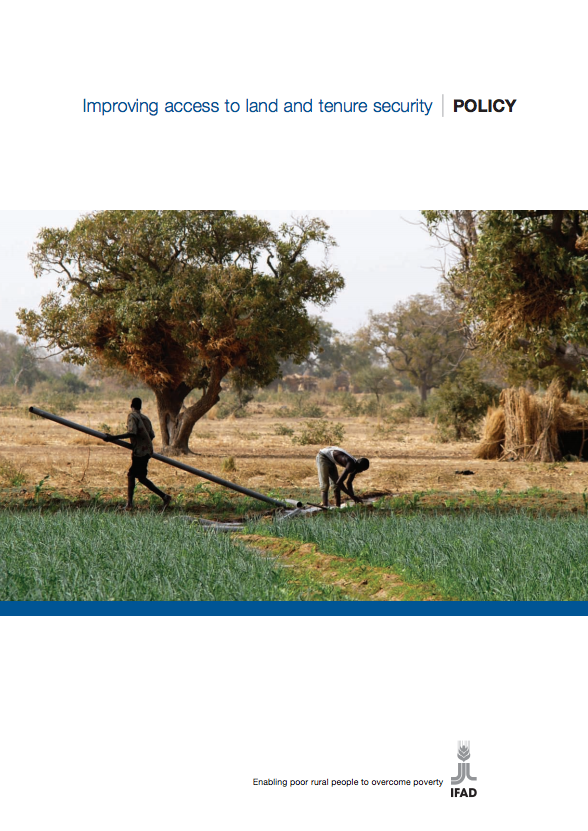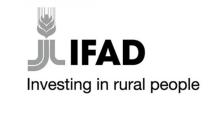Secure access to productive land is critical to poverty, acknowledging the complexity and
dynamics of evolving rural realities; (b) identify
the major implications of that relationship for
IFAD’s strategy and programme development
and implementation; (c) articulate guiding
principles for mainstreaming land issues in
the Fund’s main operational instruments and
processes; and (d) provide the framework for
the subsequent development of operational
guidelines and decision tools.
In this policy, land refers to farmland,
wetlands, pastures and forests. Land tenure
refers to rules and norms and institutions that
govern how, when and where people access
land or are excluded from such access.2
Land tenure security refers to enforceable
claims on land, with the level of enforcement
ranging from national laws to local village
rules, which again are supported by national
regulatory frameworks. It refers to people’s
recognized ability to control and manage land
– using it and disposing of its products as
well as engaging in such transactions as the
transferring or leasing of land.
The focus on land does not mean that the
inherent linkages to other natural resources,
especially water, are ignored. Rather, the aim
is to ensure a policy, institutional and
operational focus that would otherwise be
diluted if the scope were broadened to the
larger issues of access to natural resources,
and of governance and management.
the millions of poor people living in rural areas
and depending on agriculture, livestock or
forests for their livelihood. It reduces their
vulnerability to hunger and poverty; influences
their capacity to invest in their productive
activities and in the sustainable management
of their resources; enhances their prospects
for better livelihoods; and helps them develop
more equitable relations with the rest of their
society, thus contributing to justice, peace
and sustainable development.
According to the IFAD Strategic Framework
2007-2010,1 the Fund’s first strategic objective
is to help “ensure that, at the national level,
poor rural men and women have better and
sustainable access to ... natural resources
(land and water), which they are then able to
manage efficiently and sustainably.”
Land access and tenure security issues are
linked, directly or indirectly, to all the strategic
areas of IFAD’s interventions. Land issues are
of particular concern, today, when population
growth, high food prices, the impact of
climate change, trade regimes, global
consumer- and corporate-driven food
systems and growing demand for agrofuels
and feed are causing fierce competition for
land and very high pressures on tenure
systems. In a new era of high food and fuel
prices, these pressures are likely to intensify
further. They threaten the land and tenure
security – and hence the food security and
livelihoods – of millions of poor rural people
whose access to land was not previously
under threat. This in turn raises the risks of
environmental degradation and social conflict.
The IFAD Policy on Improving Access to Land
and Tenure Security has been formulated to:
(a) provide a conceptual framework for the
relationship between land issues and rural
Improving Access to Land and Tenure Security
Publisher(s)
Data Provider
Geographical focus


